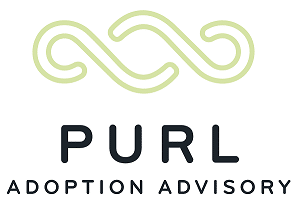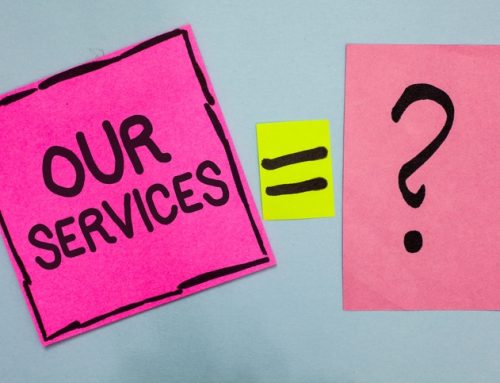
Many people consider adopting but become too discouraged by the complexity of the adoption process to proceed past an initial thought. Adoption requires research, education, preparation, money and time, with a lot of challenges along the way. No two adoptions will be the same, and each state’s laws are a little different, but each domestic infant adoption will typically follow the same general steps: Read more below to see what we recommend as for the steps in adoption.
Research, Research, Research!!!
Adoption is not for everyone. It is complex, it is trauma, it is not all rainbows and unicorns, and you should understand the good and the bad of adoption before pursuing an adoption journey. You need to have grieved your inability to have a biological child, if that’s part of the reason for pursuing adoption, and you should have already considered the type of adoption you want to pursue. You should have started listening to various perspectives in the adoption triad, but particularly adoptees, since that is the voice who is most impacted by adoption, without their say in the matter. You will need to prepare yourself to put your future child first, and understand that the adoption process isn’t about you or your desires, but instead about the child. You should research and become prepared for an open adoption, which will make it so your child through adoption grows up more whole without even more of the pieces of their history missing. If you decide after all of this that adoption is right for you, we hope that you are committed to doing adoption well, and we hope to support you through that process. So moving on to the next step…
Hire an Adoption Advisor
Start by hiring an adoption advisor to walk you through the process, who can direct you to experienced and ethical attorneys and agencies. Having someone direct you on what steps to take, how to complete them and what adoption professionals to trust is invaluable. They provide you necessary counsel throughout the emotional process and can provide you tips on what has worked well for other adoptive families. Click here to listen to a video our founder did about selecting an advisor for your journey.
Complete a Home Study
The home study is an evaluation of a prospective adoptive family that is required by law. Each state’s laws on what is required for the home study are slightly different, but it typically involves education of the adoption process, background checks, medical evaluations, and A LOT of paperwork. You typically will meet with a social worker a few times, he/she completes a relatively informal interview and inspection of your home and writes an evaluation regarding your ability to provide a safe and secure home for a child. While this step can be intimidating, it is relatively straight forward and gathering the necessary paperwork is usually the hardest part.
Create Your Family Profile and Website/Social Media
Your family profile is a sort of family scrapbook that expectant parents review when they are selecting the adoptive family to raise their child. Given that this is how a family is chosen in an agency or attorney adoption, this is an important piece of the adoption puzzle. More information about creating an engaging adoption profile is here. These days, more and more expectant parents are finding the adoptive parents online through websites and social media instead of solely utilizing an adoption agency, so an adoption advisor can also guide you through the best way to utilize word of mouth ethically and safely, and with adequate support.
Funding Your Adoption
The costs of adoption can be very high. It is important for you to prepare for those costs by applying for available grants, low interest adoption loans, cutting expenses or budgeting, and accessing tax credits and employer benefits so that you have the resources necessary to adoption domestically.. An adoption advisor can also guide families through this process and provide a list of funding resources to help offset the costs of adoption.
Apply to Attorneys/Agencies and Await a Match
In my opinion, the best method to adopt ethically and relatively quickly is using a multi-attorney/agency approach. This approach gives greater exposure to available situations nationwide and cuts down the wait time considerably. Most families with open preferences can adopt within a year or so utilizing this type of approach, with a longer time if you are particular about the child you would like to adopt (i.e. gender, ethnicity, lower budget, etc.). Timeframes have extended slightly due to COVID and lower birth rates, but almost all of our families are still adopting within our 18 month contract period. Once home study approved, we have had families wait a few days up to 2 years to hold their child.
Chosen by Expectant Parent(s)
Once you have completed your home study and your profile is with multiple attorneys/agencies, you can start presenting to expectant families considering adoption for their child. When an attorney, agency or your advisor is contacted about a situation that matches your preferences, you are typically given information available on the adoption situation (i.e. cost, health of the baby, race, gender, etc.) and have the opportunity to discuss the situation further with your advisor and/or attorney and determine whether you’d like to be presented to the expectant parent(s). The expectant parents then choose the adoptive family they want to raise their child. Once chosen, the adoptive parents may talk to the expectants parents via phone or email, or even travel to meet them in person. If they live nearby, the adoptive parents may even attend doctor’s appointments and get to know the expectant parents before the child is born. However, many of our families are prepared for an emergency situation (sometimes called “stork drops” , “surprise babies” or “baby born cases”) where the baby is already born when the expectant parents choose to make an adoption plan and the family immediately travels to pick up the child from the hospital. Regardless of when you are chosen, we recommend counsel to represent our families in the law that will apply to the adoption, and ensure that the proper steps are taken to finalize the adoption.
Placement
Once the baby is born and the expectant mother chooses again to proceed with her adoption plan and executes the necessary consents, the baby is typically placed with adoptive parents. This is usually within a few days of birth. In many states we work in, those consents are irrevocable once signed (assuming there is no fraud or duress in the process), but in others there is a period where the expectant parents can change their minds about the adoption plan and revoke their consents. We guide our families through this challenging time, and encourage them to have empathy for the expectant families during a heartbreaking process.
Post Placement
Each state requires a post placement supervision period of anywhere from one to nine months. During this time the social worker makes periodic visits with the adoptive parents to ensure the placement is going well and provide any needed support for the family before the adoption is finalized.
Finalization
After the required post placement supervision, a finalization hearing is held where a judge will sign the final judgment decreeing the adoptive parents as the child’s legal parents. We encourage and support families to have an open relationship with the birth family, and guide them through that process.
The adoption process can be overwhelming and intimidating, so having an advisor who has walked in your shoes can help guide you in your journey. For more information, please contact Purl Adoption Advisory for more information on beginning your adoption journey.

Many people consider adopting but become too discouraged by the complexity of the adoption process to proceed past an initial thought. Adoption requires research, education, preparation, money and time, with a lot of challenges along the way. No two adoptions will be the same, and each state’s laws are a little different, but each domestic infant adoption will typically follow the same general steps: Read more below to see what we recommend as for the steps in adoption.
Research, Research, Research!!!
Adoption is not for everyone. It is complex, it is trauma, it is not all rainbows and unicorns, and you should understand the good and the bad of adoption before pursuing an adoption journey. You need to have grieved your inability to have a biological child, if that’s part of the reason for pursuing adoption, and you should have already considered the type of adoption you want to pursue. You should have started listening to various perspectives in the adoption triad, but particularly adoptees, since that is the voice who is most impacted by adoption, without their say in the matter. You will need to prepare yourself to put your future child first, and understand that the adoption process isn’t about you or your desires, but instead about the child. You should research and become prepared for an open adoption, which will make it so your child through adoption grows up more whole without even more of the pieces of their history missing. If you decide after all of this that adoption is right for you, we hope that you are committed to doing adoption well, and we hope to support you through that process. So moving on to the next step…
Hire an Adoption Advisor
Start by hiring an adoption advisor to walk you through the process, who can direct you to experienced and ethical attorneys and agencies. Having someone direct you on what steps to take, how to complete them and what adoption professionals to trust is invaluable. They provide you necessary counsel throughout the emotional process and can provide you tips on what has worked well for other adoptive families. Click here to listen to a video our founder did about selecting an advisor for your journey.
Complete a Home Study
The home study is an evaluation of a prospective adoptive family that is required by law. Each state’s laws on what is required for the home study are slightly different, but it typically involves education of the adoption process, background checks, medical evaluations, and A LOT of paperwork. You typically will meet with a social worker a few times, he/she completes a relatively informal interview and inspection of your home and writes an evaluation regarding your ability to provide a safe and secure home for a child. While this step can be intimidating, it is relatively straight forward and gathering the necessary paperwork is usually the hardest part.
Create Your Family Profile and Website/Social Media
Your family profile is a sort of family scrapbook that expectant parents review when they are selecting the adoptive family to raise their child. Given that this is how a family is chosen in an agency or attorney adoption, this is an important piece of the adoption puzzle. More information about creating an engaging adoption profile is here. These days, more and more expectant parents are finding the adoptive parents online through websites and social media instead of solely utilizing an adoption agency, so an adoption advisor can also guide you through the best way to utilize word of mouth ethically and safely, and with adequate support.
Funding Your Adoption
The costs of adoption can be very high. It is important for you to prepare for those costs by applying for available grants, low interest adoption loans, cutting expenses or budgeting, and accessing tax credits and employer benefits so that you have the resources necessary to adoption domestically.. An adoption advisor can also guide families through this process and provide a list of funding resources to help offset the costs of adoption.
Apply to Attorneys/Agencies and Await a Match
In my opinion, the best method to adopt ethically and relatively quickly is using a multi-attorney/agency approach. This approach gives greater exposure to available situations nationwide and cuts down the wait time considerably. Most families with open preferences can adopt within a year or so utilizing this type of approach, with a longer time if you are particular about the child you would like to adopt (i.e. gender, ethnicity, lower budget, etc.). Timeframes have extended slightly due to COVID and lower birth rates, but almost all of our families are still adopting within our 18 month contract period. Once home study approved, we have had families wait a few days up to 2 years to hold their child.
Chosen by Expectant Parent(s)
Once you have completed your home study and your profile is with multiple attorneys/agencies, you can start presenting to expectant families considering adoption for their child. When an attorney, agency or your advisor is contacted about a situation that matches your preferences, you are typically given information available on the adoption situation (i.e. cost, health of the baby, race, gender, etc.) and have the opportunity to discuss the situation further with your advisor and/or attorney and determine whether you’d like to be presented to the expectant parent(s). The expectant parents then choose the adoptive family they want to raise their child. Once chosen, the adoptive parents may talk to the expectants parents via phone or email, or even travel to meet them in person. If they live nearby, the adoptive parents may even attend doctor’s appointments and get to know the expectant parents before the child is born. However, many of our families are prepared for an emergency situation (sometimes called “stork drops” , “surprise babies” or “baby born cases”) where the baby is already born when the expectant parents choose to make an adoption plan and the family immediately travels to pick up the child from the hospital. Regardless of when you are chosen, we recommend counsel to represent our families in the law that will apply to the adoption, and ensure that the proper steps are taken to finalize the adoption.
Placement
Once the baby is born and the expectant mother chooses again to proceed with her adoption plan and executes the necessary consents, the baby is typically placed with adoptive parents. This is usually within a few days of birth. In many states we work in, those consents are irrevocable once signed (assuming there is no fraud or duress in the process), but in others there is a period where the expectant parents can change their minds about the adoption plan and revoke their consents. We guide our families through this challenging time, and encourage them to have empathy for the expectant families during a heartbreaking process.
Post Placement
Each state requires a post placement supervision period of anywhere from one to nine months. During this time the social worker makes periodic visits with the adoptive parents to ensure the placement is going well and provide any needed support for the family before the adoption is finalized.
Finalization
After the required post placement supervision, a finalization hearing is held where a judge will sign the final judgment decreeing the adoptive parents as the child’s legal parents. We encourage and support families to have an open relationship with the birth family, and guide them through that process.
The adoption process can be overwhelming and intimidating, so having an advisor who has walked in your shoes can help guide you in your journey. For more information, please contact Purl Adoption Advisory for more information on beginning your adoption journey.



